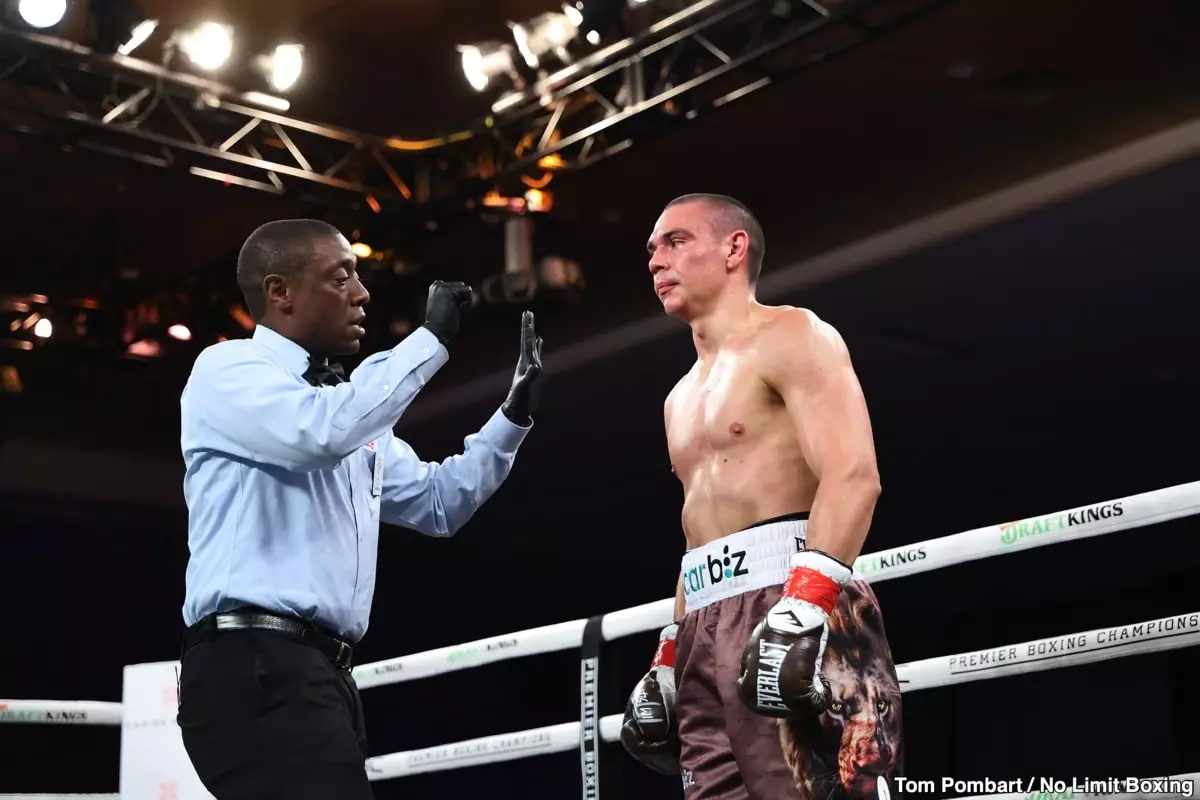The world of boxing is notoriously unforgiving, with the pressure to remain undefeated often leading to a struggle for fighters like Tim Tszyu. Following his second consecutive defeat—a third-round knockout against IBF junior middleweight champion Bakhram Murtazaliev—critics have begun to label him as “washed up.” This harsh judgment raises poignant questions about fan expectations, the pressures placed on fighters, and the overall vitality of the sport as it stands today.
Chris Algieri, a former champion and current analyst, recently expressed his concern over how quickly fans discard fighters after a couple of losses. In an era that seems increasingly obsessed with maintaining an unblemished record, even talented boxers are often labeled failures when they stumble. It leads to a culture where promoters avoid taking risks, opting instead for matchups that pose little threat to their fighters’ records.
This trend fosters a lack of competitive spirit in the sport, as fans are inundated with one-sided bouts instead of the closely contested matches they crave. Such mismatches can tarnish the sport’s reputation, leading to dwindling viewership and unwillingness from networks to invest in boxing events. By prioritizing fighters with flawless records, the sport could inadvertently be signing its own death warrant.
Despite facing criticism and a loss, it’s essential to recognize the bravery exhibited by fighters like Tszyu. He took on a risky fight against Murtazaliev when many others among the elite level chose to fight easier opponents. The idea that a fighter is “washed up” after lost opportunities can both dampen their career prospects and discourage future stars from challenging themselves in the ring.
Algieri highlights the troubling reality of how fan perception skews after one or two defeats. Despite Tszyu’s previous successes with a record of 24 wins and only 2 losses, a culture of immediate dismissal leaves fighters vulnerable. Algieri points out that Tszyu deserves to be considered in the context of his competition rather than simply reduced to his loss count. The narrative must shift; a fighter’s willingness to test themselves against high-caliber opponents should be applauded rather than penalized.
The consequence of fan attitudes directly reflects in the matchmaking decisions made by promoters. With a focus on maintaining records rather than pursuing competitive integrity, many fighters are now boxing against weaker opponents. This trend leads to fans growing disenchanted, resulting in audiences being less inclined to pay for pay-per-view bouts that advertise talent—but deliver disappointments.
The mismatch idea permeates throughout divisions, where champions often avoid challenging fights. This inevitably leads to padding records that only serve to inflate resumes without offering genuine competitive challenges. As Algieri suggests, it ultimately harms aspiring fighters and risks creating a frustrating viewing experience for loyal fans.
Tszyu’s journey does not end with a couple of defeats. To reclaim the respect and fandom that he once commanded, he’ll need to rebound by taking on formidable opponents. This will involve a significant shift in the narrative about what constitutes success and courage within the sport. For instance, facing lesser opponents in an attempt to regain “trust” may not be the solution; fans respect a fighter who is willing to risk failure against high-stakes challenges.
Algieri makes a poignant observation regarding Tszyu’s fight with Murtazaliev—highlighting that, despite the loss, it revealed more about Murtazaliev’s potential than Tszyu’s shortcomings. This calls for a reevaluation of what losses truly mean in boxing. If fans continue to discard fighters after small setbacks, they may ultimately miss out on witnessing the growth and resilience of these athletes.
As we reflect on Tszyu’s recent experience, it’s crucial that both fans and promoters embrace a more nuanced perspective on what constitutes success in boxing. Fighters should not be judged solely on their loss record but rather on their willingness to engage in battles that truly challenge them. If the sport is to thrive, it must cultivate an environment where risk and bravery are celebrated—rather than punished. As boxing navigates through these tumultuous waters, it is imperative that the narrative surrounding athletes like Tim Tszyu shifts towards one of support and appreciation for their courage in the ring, helping to breathe new life into a sport that deserves better.


Leave a Reply